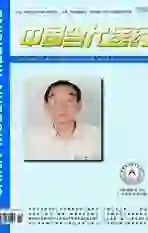广州市大学生睡眠质量和嗜睡的调查
2014-08-08罗嘉莹黄嘉敏韦金师黄笑敏高梦雅张雪雯
罗嘉莹+黄嘉敏+韦金师+黄笑敏+高梦雅+张雪雯
[摘要] 目的 调查分析广州市高校大学生的睡眠情况,了解不同专业及不同年级大学生睡眠质量和嗜睡现状。 方法 随机抽取1200名大学生作为调查对象,采用匹兹堡睡眠质量指数(PSQI)评定大学生的睡眠质量及爱泼沃斯嗜睡量表(ESS)评定大学生的嗜睡程度。 结果 回收有效问卷858份。男、女生的PSQI总分差异无统计学意义(P=0.481),ESS得分差异有统计学意义(P=0.003);PSQI总分及ESS得分在不同年级的学生中差异无统计学意义(P=0.205,P=0.281);不同专业学生的PSQI总分及ESS得分差异有统计学意义(P=0.001,P=0.000)。 结论 专业对大学生嗜睡程度和睡眠质量有影响,学校及家长应重视大学生的睡眠问题。
[关键词] 睡眠质量;学生;匹兹堡睡眠质量指数;Epworth嗜睡量表
[中图分类号] R163[文献标识码] A[文章编号] 1674-4721(2014)05(c)-0168-04
Investigation on sleep quality and sleepiness of students in guangzhou college
LUO Jia-Ying1 HUANG Jia-Ming2 WEI Jin-Shi2 HUANG Xiao-min1 GAO Meng-Ya2 ZHANG Xue-Wen2
1.Sleep Center,the First Hospital Affiliated to Guangzhou Medical University,Guangzhou 510120,China;2.Guangzhou Medical University,Guangzhou 510182,China
[Abstract]Objective To investigate the sleep situation of college students in Guangzhou City to know sleep quality and sleepiness in different professional and different grade of students in Guangzhou College. Methods 1200 students were selected by random,Pittsburgh sleep quality index (PSQI) was used to assess students′ sleep quality and Epworth sleep score (ESS) was used to assess students′ degree of sleepiness. Results 858 questionnaires were valid.There were no significant difference between male and female in PSQI score (P=0.481),but there were significant difference in ESS score (P=0.003).There was no significant difference between different grade in PSQI score and ESS score(P=0.062,P=0.281). The score of PSQI and ESS were significant difference among different professional(P=0.001,P=0.000). Conclusion Different professional impact sleep quality and sleepiness of students in college, parents and teachers in college should pay more attention to sleep problems of students.
[Key words] Sleep quality;Students;Pittsburgh sleep quality index;Epworth sleep score
充足、良好的睡眠是人类生存的基础,容易受众多因素影响。睡眠具有促进生长发育,形成记忆的功能。缺乏睡眠或睡眠质量差除会对个体的功能产生影响外,还会对社会经济产生一定的影响。睡眠问题除了存在于成人外,也存在于学生中,有调查[1-2]显示, 在大学生群体中存在睡眠障碍的人数在13.93%~42.90%之间。大学生面临繁重的学业压力、激烈的就业竞争和复杂的人际关系问题,容易产生不同的睡眠问题。为了解广州市大学生的睡眠质量以及分析其影响因素,我们对市内大学不同专业的大学生进行了调查。
1 对象与方法
1.1 研究对象
采取随机取样法抽取广州市不同大学大一到大四的本科生进行调查。发出问卷1200份,回收有效问卷858份,年龄19±2岁。其中男生460人(53.6%),女生398人(46.4%);大一学生375人(43.7%),大二学生328人(38.2%),大三学生89人(10.4%),大四学生66人(7.7%);医学专业317人(36.9%),体育专业235人(27.4%),综合专业306人(35.7%)。
1.2 研究方法
采用匹兹堡睡眠质量指数(Pittsburgh sleep quality index,PSQI) 作为评价睡眠质量的量表[1],量表由9道题组成,前4题为填空题,后5题为选择题,其中第5题包含10道小题,统计指标为睡眠质量、入睡时间、睡眠时间、睡眠效率、睡眠障碍、催眠药物和对日间功能障碍7个成分,每个成分按0~3等级计分,累积各成分得分为PSQI总分,总分范围为0~20分。PSQI用于评定受访者最近1个月的睡眠质量,以PSQI≥8分作为判定睡眠质量问题的标准[3],得分越高,表示睡眠质量越差。采用爱泼沃斯嗜睡量表(Epworth sleep score,ESS) 评估学生白天的嗜睡程度[4]。ESS总分为0~24分,得分越高,嗜睡程度越严重。
1.3 统计学处理
采用SPSS 19.0统计软件进行资料的录入和分析,计量资料用x±s表示,组间比较采用t检验和方差分析,以P<0.05为差异有统计学意义。
2 结果
2.1 大学生睡眠质量情况
不同专业大学生的BMI及PSQI、ESS得分见表1;不同专业大学生PSQI各维度的得分比较见表2;不同年级大学生的BMI及PSQI、ESS得分见表3。
表1 不同专业类大学生的基本资料表(x±s)
表2 不同专业大学生PSQI各维度得分的比较(分,x±s)
表3 不同年级大学生的基本资料表(x±s)
2.2 睡眠质量与性别
有225人(26.2%)的大学生在睡眠质量上存在问题,其中男生有睡眠质量问题有117人(13.6%),女生有睡眠质量问题有108人(12.6%)。男生的PSQI总分为(5.72±2.94)分,女生为(5.86±2.75)分,不同性别学生的PSQI得分比较差异无统计学意义(P=0.481)。
endprint
2.3 睡眠质量与专业、年级
经方差分析,PSQI总分在不同专业学生中差异有统计学意义(P=0.001)(表1)。PSQI总分在不同年级学生中差异无统计学意义(P=0.205)(表3)。
2.4 嗜睡程度与性别、专业、年级
根据[5]研究显示,ESS得分>10考虑为嗜睡。结果示,ESS>10分有161人,其中男生占8.97%(77人),女生占9.79%(84人)。男生ESS得分[(6.14±3.55)分]与女生ESS得分[(6.87±3.55)分]差异有统计学意义(P=0.003)。经方差分析,ESS得分(6..48±3.57)在不同专业的学生中差异有统计学意义(P=0.000)(表1)。ESS得分在不同年级的学生差异无统计学意义(P=0.281)(表3)。
3 讨论
睡眠是日间生物节律的一部分,是维持人类身体健康及身体各个功能的重要组成部分,尽管如此,在现今社会,由于日常社会交往及工作的安排,睡眠时间容易被工作占据,睡眠节律被打乱,成人易患有睡眠障碍或睡眠质量差,已有很多的研究证明[6]这些睡眠问题会引起人体生理学上的负反馈反应,并可增高人类的病死率及致残率。睡眠问题在青少年中表现并不明显,这可能与青少年的睡眠形式会被许多因素影响有关,包括生物行为及环境因素[7]。处于大学的青少年仍处于学习阶段,但学习时间较初中高中更能主动安排,可能会由于每周课程的安排不同,导致夜间上床时间的延后、或导致白天起床时间提早,因课程增多而导致睡眠时间减少,在周末时间睡眠时间相对增多,这些都是容易导致大学生出现睡眠问题的因素。本次调查采用评价睡眠质量的量表PSQI及ESS评分结合,评估大学生白天的嗜睡情况及睡眠质量情况。PSQI量表经多次修订[6,8]适用于我国健康人及临床患者的睡眠质量评估,ESS评分是由国外睡眠机构设计,用于评价日间嗜睡情况已被广泛认可[8]。本次调查结果的ESS及PSQI总分表明,广州市大学生有睡眠问题者占26.2%,与国外调查结果相似[9-10]。据报道[11-12],大学生睡眠自评得分与睡眠质量存在性别差异,但也有研究[13]提出,男女睡眠质量并无差异,以往得出的差异可能是由于抑郁、焦虑等心理因素造成。本次调查发现男女大学生睡眠质量差异无统计学意义,可能由于现今男女平等的观念加强,在大学社团活动中,女男生所担当的角色相当,需烦恼或担忧的事情一样多,因此,影响睡眠的因素也就类似,造成睡眠质量男女生无差异。此次调查男女生的ESS评分差异有统计学意义,女生的嗜睡程度高的人数比男生多,这与国外调查[14]结果相符,可能与非恢复性睡眠或夜间惊醒有关。
本次调查发现,医学专业睡眠状况问题的人数较多,不同专业学生的PSQI总分、ESS评分差异有统计学意义,我们推测是因为各专业面临的课程教学任务,特别是大家最关心的就业形势不同所造成的,这与国外的调查[3]相类似。普遍反映医科学生学习课程多,记忆内容多,时间较为紧张。医学生肩负着未来救死扶伤的使命,就需要不断地学会临床技能及掌握前沿医学信息。因为他们只要稍有松懈,患者的性命就会受到威胁,所以医学专业的同学也就比其他专业的同学责任和压力更大。综合专业及体育专业的同学相对没有那么大压力,且课程较为轻松,因此专业对大学生的睡眠质量及嗜睡程度也就有影响。调查发现,不同年级的大学生睡眠状况差异无统计学意义,但Lemma的研究[15]显示大二或大三的大学生睡眠质量更差,这种差异可能与国内外大学课程设置有关。在国内,大学生在各年级面临的困难有所不同:大一时,由于刚进入大学,大学生活及学习的新鲜感及随之产生的压力容易产生睡眠问题;大二时,学生大都会当上干部或有更大的交际圈,干部举办很多的学生会活动或组织活动会耗费很多的精力及熬夜,又或许跟朋友出去玩或通宵等都会对睡眠的质量造成影响,也就会出现睡眠问题;大三时,学校课业逐渐加重,考研、就业等问题的出现导致睡眠障碍的发生;而大四学生面对考研失败,或工作没有着落等各方面的打击而出现睡眠问题。研究显示[13]脑力组的睡眠障碍发生率(11.58%)明显高于体力组(6.74%),所以有必要防止大学生因学习过于紧张而导致的睡眠问题。有研究表明,不经常参加体育锻炼的大学生发生睡眠质量差的危险度是经常参加体育锻炼大学生的1.219 倍[16]。要想保证睡眠安稳、舒适,必须心情愉快,平静轻松,而适当的体育锻炼则有助于压力的释放和心灵的平静。最容易做到每天都锻炼的就是体育专业的学生了,而此次调查也显示体育专业有睡眠质量的人数确实较少。
调查结果显示,大部分学生认为充足睡眠时间应为8 h,但青少年每晚的睡眠时间应该为9 h[17]。当晚上睡眠不佳时,大多数人白天会出现情绪低落、身体功能(体力或精神、记忆力、注意力等)受到影响、学习效率低下等情况[18-19]。大学生由于环境等多重因素影响容易导致睡眠问题发生,这些多重的因素包括父母的影响力的减少或消除,自由选择睡眠时间,课业要求的增加,经济的压力,工作或社团活动时间的增加,这些行为会影响睡眠形式的改变(如睡眠-清醒时间的时相延迟及总睡眠时间的减少)[20]。睡眠不足和(或)非恢复性睡眠会影响神经系统及心理的识别能力。睡眠质量与学习成绩有关,睡眠时间减少,学习成绩会较差。本次调查显示专业对大学生嗜睡程度及睡眠质量有影响,学校及家长应重视大学生的睡眠问题,多开展大学生课外体育锻炼,增强学生体质,并指导学生正确处理所面对的困难,保证其睡眠质量。
[参考文献]
[1]Mesquita G,Reimao R.Stress and sleep quality in high school brazilian adolescents[J].An Acad Bras Cienc,2010,82(2):545-551.
[2]李燕芬,李延杰,邹宇华,等.广东药学院373名大学生睡眠质量及相关因素分析[J].中国学校卫生,2004,25(6):649-650.
[3]Hung HC,Yang YC,Ou HY,et al.The association between self-reported sleep quality and overweight in a Chinese population[J].Obesity (Silver Spring),2013,21(3):486-492.
[4]Johns MW.A new method for measuring daytime sleepiness:the Epworth sleepiness scale[J].Sleep,1991,14(6):540-545.
[5]Chen NH,Johns MW,Li HY,et al.Validation of a Chinese version of the Epworth sleepiness scale[J].Qual Life Res,2002. 11(8):817-821.
[6]Wingard DL,Berkman LF.Mortality risk associated with sleeping patterns among adults[J].Sleep,1983,6(2):102-107.
endprint
[7]Carkadon MA,Dement WC.Normal human sleep:an overview//Kryger MH,Roth T,Dement WC.Principles and practice of sleep medicine[M].4th. Amsterdam:Elsevier Medicine,2005: 12-23.
[8]Liu SA,Li HY,Tsai WC,et al.Associated factors to predict outcomes of uvulopharyngopalatoplasty plus genioglossal advancement for obstructive sleep apnea[J].Laryngoscope,2005,115(11):2046-2050.
[9]Pagel JF,Forister N,Kwiatkowki C.Adolescent sleep disturbance and school performance:the confounding variable of socioeconomics[J].J Clin Sleep Med, 2007,3(1):19-23.
[10]Roane BM,Taylor DJ.Adolescent insomnia as a risk factor for early adult depression and substance abuse[J].Sleep,2008,31(10):1351-1356.
[11]Martin JS,Hébert M,Ledoux E,et al. Relationship of chronotype to sleep,light exposure,and work-related fatigue in student workers[J].Chronobiol Int,2012,29(3):295-304.
[12]刘贤臣,唐茂芹,胡蕾,等.大学生睡眠质量与心理健康状况的相关性研究[J].中国临床心理学杂志,1995. 3(1):26-31.
[13]Voderholzer U,Al-Shajlawi A,Weske G,et al.Are there gender differences in objective and subjective sleep measures:A study of insomniacs and healthy controls[J].Depress Anxiety,2003,17(3):162-172.
[14]Kilincaslan A,Yilmaz K,Oflaz SB,et al.An epidemiological study of self-reported sleep problems in Turkish high school adolescents[J].Pediatr Int,2014.[Epub ahead of print]
[15]Lemma S,Gelaye B,Berhane Y,et al.Sleep quality and its psychological correlates among university students in Eth iopia: a cross-sectional study[J].BMC Psychiatry, 2012, 12:237.
[16]王静, 谢宜鹏.安徽省大学生睡眠质量及其影响因素的分析[J].中国校医,2003,17(2):127-8.
[17]Wolfson AR,Carskadon MA.Sleep schedules and daytime functioning in adolescents[J].Child Dev,1998,69(4):875-887.
[18]Abdulghani HM,AI-Drees AA,Khalil MS,el al.What factors detemine academic achievement in high achieving undergraduate medical students?A qualitative study[J].Med Teach,2014,36(Suppl 1):S43-S48.
[19]Sanders AF. Towards a model of stress and human performance[J].Acta Psychol (Amst),1983,53(1):61-97.
[20]Taras H,Potts-Datema W.Sleep and student performance at school[J].J Sch Health,2005,75(7):248-254.
(收稿日期:2014-04-04本文编辑:许俊琴)
endprint
[7]Carkadon MA,Dement WC.Normal human sleep:an overview//Kryger MH,Roth T,Dement WC.Principles and practice of sleep medicine[M].4th. Amsterdam:Elsevier Medicine,2005: 12-23.
[8]Liu SA,Li HY,Tsai WC,et al.Associated factors to predict outcomes of uvulopharyngopalatoplasty plus genioglossal advancement for obstructive sleep apnea[J].Laryngoscope,2005,115(11):2046-2050.
[9]Pagel JF,Forister N,Kwiatkowki C.Adolescent sleep disturbance and school performance:the confounding variable of socioeconomics[J].J Clin Sleep Med, 2007,3(1):19-23.
[10]Roane BM,Taylor DJ.Adolescent insomnia as a risk factor for early adult depression and substance abuse[J].Sleep,2008,31(10):1351-1356.
[11]Martin JS,Hébert M,Ledoux E,et al. Relationship of chronotype to sleep,light exposure,and work-related fatigue in student workers[J].Chronobiol Int,2012,29(3):295-304.
[12]刘贤臣,唐茂芹,胡蕾,等.大学生睡眠质量与心理健康状况的相关性研究[J].中国临床心理学杂志,1995. 3(1):26-31.
[13]Voderholzer U,Al-Shajlawi A,Weske G,et al.Are there gender differences in objective and subjective sleep measures:A study of insomniacs and healthy controls[J].Depress Anxiety,2003,17(3):162-172.
[14]Kilincaslan A,Yilmaz K,Oflaz SB,et al.An epidemiological study of self-reported sleep problems in Turkish high school adolescents[J].Pediatr Int,2014.[Epub ahead of print]
[15]Lemma S,Gelaye B,Berhane Y,et al.Sleep quality and its psychological correlates among university students in Eth iopia: a cross-sectional study[J].BMC Psychiatry, 2012, 12:237.
[16]王静, 谢宜鹏.安徽省大学生睡眠质量及其影响因素的分析[J].中国校医,2003,17(2):127-8.
[17]Wolfson AR,Carskadon MA.Sleep schedules and daytime functioning in adolescents[J].Child Dev,1998,69(4):875-887.
[18]Abdulghani HM,AI-Drees AA,Khalil MS,el al.What factors detemine academic achievement in high achieving undergraduate medical students?A qualitative study[J].Med Teach,2014,36(Suppl 1):S43-S48.
[19]Sanders AF. Towards a model of stress and human performance[J].Acta Psychol (Amst),1983,53(1):61-97.
[20]Taras H,Potts-Datema W.Sleep and student performance at school[J].J Sch Health,2005,75(7):248-254.
(收稿日期:2014-04-04本文编辑:许俊琴)
endprint
[7]Carkadon MA,Dement WC.Normal human sleep:an overview//Kryger MH,Roth T,Dement WC.Principles and practice of sleep medicine[M].4th. Amsterdam:Elsevier Medicine,2005: 12-23.
[8]Liu SA,Li HY,Tsai WC,et al.Associated factors to predict outcomes of uvulopharyngopalatoplasty plus genioglossal advancement for obstructive sleep apnea[J].Laryngoscope,2005,115(11):2046-2050.
[9]Pagel JF,Forister N,Kwiatkowki C.Adolescent sleep disturbance and school performance:the confounding variable of socioeconomics[J].J Clin Sleep Med, 2007,3(1):19-23.
[10]Roane BM,Taylor DJ.Adolescent insomnia as a risk factor for early adult depression and substance abuse[J].Sleep,2008,31(10):1351-1356.
[11]Martin JS,Hébert M,Ledoux E,et al. Relationship of chronotype to sleep,light exposure,and work-related fatigue in student workers[J].Chronobiol Int,2012,29(3):295-304.
[12]刘贤臣,唐茂芹,胡蕾,等.大学生睡眠质量与心理健康状况的相关性研究[J].中国临床心理学杂志,1995. 3(1):26-31.
[13]Voderholzer U,Al-Shajlawi A,Weske G,et al.Are there gender differences in objective and subjective sleep measures:A study of insomniacs and healthy controls[J].Depress Anxiety,2003,17(3):162-172.
[14]Kilincaslan A,Yilmaz K,Oflaz SB,et al.An epidemiological study of self-reported sleep problems in Turkish high school adolescents[J].Pediatr Int,2014.[Epub ahead of print]
[15]Lemma S,Gelaye B,Berhane Y,et al.Sleep quality and its psychological correlates among university students in Eth iopia: a cross-sectional study[J].BMC Psychiatry, 2012, 12:237.
[16]王静, 谢宜鹏.安徽省大学生睡眠质量及其影响因素的分析[J].中国校医,2003,17(2):127-8.
[17]Wolfson AR,Carskadon MA.Sleep schedules and daytime functioning in adolescents[J].Child Dev,1998,69(4):875-887.
[18]Abdulghani HM,AI-Drees AA,Khalil MS,el al.What factors detemine academic achievement in high achieving undergraduate medical students?A qualitative study[J].Med Teach,2014,36(Suppl 1):S43-S48.
[19]Sanders AF. Towards a model of stress and human performance[J].Acta Psychol (Amst),1983,53(1):61-97.
[20]Taras H,Potts-Datema W.Sleep and student performance at school[J].J Sch Health,2005,75(7):248-254.
(收稿日期:2014-04-04本文编辑:许俊琴)
endprint
